
The first exposure I had to the determinism-free will discussion was in elementary school when we attended the Calvary Baptist Church in McAllen, Texas. The argument was if God knows everything and is all-powerful, he knows ahead of time what we will do and he made us that way, so we can't really be making choices. Differently put, no one really chooses the next step in life if it has already been decided by an omnipotent, omniscient God.
As a little boy, intuitively, I thought I was making choices, but I also had a strong sense I was being tossed around by powers far greater than me.
Although Baptists tend to believe in Free Will, there has long been a Calvinist contingent among the Baptists:
"...the earliest Baptists were not Calvinists, even though they had their beginnings in a Calvinistic environment. It was a quarter of a century before Calvinist views appeared in Baptist life. Even then, for a considerable period of time there were two different groups of Baptists in England, General Baptists (non-Calvinistic) and Particular Baptists (Calvinistic). Later (1891) the two groups merged, but many congregations on both sides were suspicious of the merger and remained separate. In America, the first Baptist church (FBC of Providence, Rhode Island) had both Calvinists and non-Calvinists in its membership."
The big issue is whether God picked those who were going to hell and those going to heaven before birth.
We are long since Catholic converts, but that does not really resolve the issue, even though the Catechism now state,
"Man is rational and therefore like God; he is created with free will and is master over his acts."
The anti-Calvinist protestants accuse Calvin of having cribbed from the Catholic St. Augustine for a reliance on determinism. And The New Advent Catholic Encyclopedia (cited in the link) discusses the issue as far from settled. I discussed Pascal's falling out of favor with the powers of his day because of a Catholic belief in determinism.
Mostly now, people talk about biological and psychological determinism, but I think it is largely the same discussion as God's determinism.
My first exposure to this type of determinism was when I read Walden Two by B.F. Skinner when I was still in High School. I kept the intuition that I was making free choices, but I could not find an strong argument against Skinner's determinism.
In the decades since, I have seen little evidence that people have choice in life. At most, we have an illusion that we are making a choice, but that choice is determined by prior causes. Recently, I read Living Without Free Will by Derk Pereboom. He makes the case for "Hard Determinism" and "Hard Incompatibilism." That is, factors beyond our control produce all of our actions and this fact is incompatible with a belief we are praiseworthy or blameworthy for our actions.
If this is true (and Pereboom argues it as scientific fact), the implications for life and society are huge. For starters, it demonstrates our criminal justice system is based on a false premise.
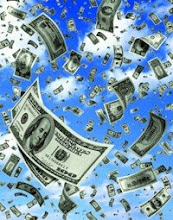
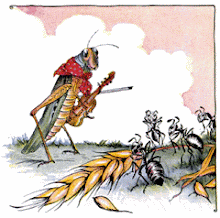













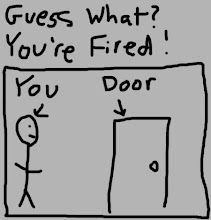










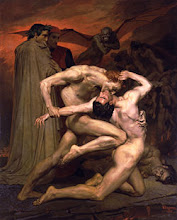_-_Dante_And_Virgil_In_Hell_(1850).jpg)



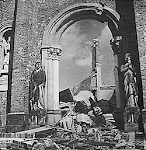











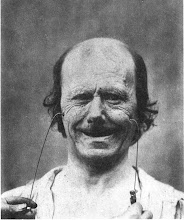
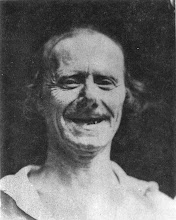


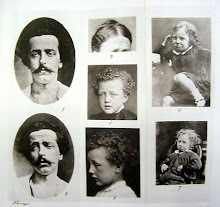






















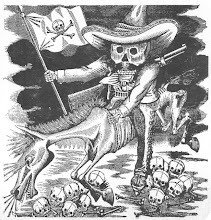












15 comments:
Nah. That just means God created criminals to be social outcasts.
Does this mean I can stop feeling guilty about school tardies and baby teeth cavities?
God made me do it give me probations
God may very well be a convenient way of overcoming our genetic inferiority complex as humans.
“There is just no way that we came from the same place as those animals; we’re special!”
Maybe in order to stimulate their respective economies, Hammurabi and Moses slipped into an euphoric slumber and invented a system that created a means where lawyers, politicians, and lobbyists, could control the whole criminal justice system.
Mix God into the equation (as needed), maybe use basic human rights as a campaign platform (either way), and roll the dice!
Surely we have enough evidence
for "Hard Determinism" and "Hard Incompatibilism" to debate for a long, long, time.
If Darwin is right and "only the strong survive", then being our brothers keeper needs to be re-examined.
good to see you back....ML
Really then, do we follow that logic to eugenics or genetic engineering? I dont think that is what you are suggesting but it is where you will lead if you follow the same path.
If you know the flaws are consistent, then we must work to correct those flaws or do we accept the bad in the world? If we do not accept the bad, that means we are making a choice.
Anony,
Interesting...I really don't know which path would lead to worthy discernment, but it could be within us to judge by common sense.
Tying up the system with petty legislative hyperbole only acts as a teething implement to perpetuate the status quo. (freshman idealogue I know, but a jailor just the same.)
The Cameron County Commissioners'Court doesn't have the foresight to study eugenics or the means to dissect, identify, and restore the criminal due process system that has been a canker sore for the poor, for a long time.
In the meantime....
....clarification on the above post.
I do not advocate or approve of the eugenics movement.
Warehousing inmates for a profit to the county seems like a bad way to balance the budget when the root of the problem is out of sight, out of mind.
If one believes that there is no such thing as free will and our lives are strictly guided by determinism, they have made a rational evaluation, and have come to a logical conclusion. And that process happens without making choices along the path that brought you to that conclusion?
In fact, you are "choosing" to believe in determination over free will.
This most recent topic brings home the Proudhon and Kropotkin articles that were posted awhile back. Throw in a bit of Malatesta;
“In all times and in all places, whatever may be the name of that the government takes, whatever has been its origin, or its organization, its essential function is always that of oppressing and exploiting the masses, and of defending the oppressors and exploiters. Its principal characteristic and indispensable instruments are the policeman and the tax collector, the soldier and the prison.”
...seems like some folks don't stand a chance. Especially the ones that don't understand the difference between determinism or
whatever, they just want to see a judge and plead out, maybe start over again...
So why am I repeating this story? The question is who pressured Juan Montoya to take down the story after he posted it at 8:11 p.m. If you cache it you see the blank spot where the story was. Or is it a question of loose lips sink ships.
http://74.125.95.132/search?q=cache:DBx7m9dYf2kJ:rrunrrun.blogspot.com/+presas-garcia+accion+america+rrun&cd=1&hl=en&ct=clnk&gl=us
1007影音視訊交友網.
.
.
.
.
.
.
.
.
.
.
.
.
.
.
.
.
.
.
.
.
.
.
.
.
.
.
.
.
.
Aimlow indeed my friend.
Aimlow Joe
http://www.aimlow.com
God is all knowing and although he already knowns the choices we will make, we do have free will. God stands back while he lets us make the decisions.
I choose to share from the Catholic Encyclopedia entry on "Determinism": Self-determination implies separateness of individuality and independence in each free agent, and thus entails a pluralistic conception of the universe. (See DUALISM; MONISM.) In spite of the assertions of Determinists, no true logical distinction can be made between their view and that of Fatalism. In both systems each of my volitions is as inexorably fated, or pre-determined, in the past conditions of the universe as the movements of the planets or the tides. The opponents of Determinism usually insist on two lines of argument, the one based on the consciousness of freedom in the act of deliberate choice, the other on the incompatibility of Determinism with our fundamental moral convictions. The notions of responsibility, moral obligation, merit, and the like, as ordinarily understood, would be illusory if Determinism were true. The theory is in fact fatal to ethics, as well as to the notion of sin and the fundamental Christian belief that we can merit both reward and punishment. (See FREE WILL; ETHICS; FATALISM.) -- Pax et bonum
Post a Comment